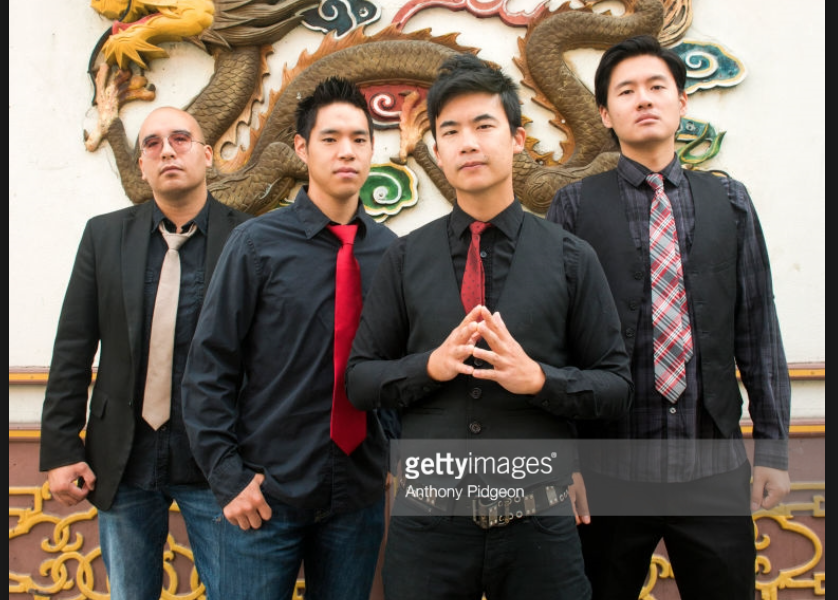
Simon Tam named his band “The Slants.” The name was intended to be a slur against people of Asian decent. Simon, himself a person of Asian descent, felt that by taking ownership of the derogatory term, he could drain it of its “denigrating force.”
When he applied for a trademark for the name, the Federal Government denied Tam’s request based upon agency rules that prohibited the registration of trademarks that might “disparage . . . or bring . . .into contempt or disrepute” any “persons, living or dead.”
Serious football fans know that there is a similar case pending in the federal courts concerning the trademark registration for the Washington Redskins Football team. The same agency suspended the registration of their trademark and the Redskins sued. In a similar vein, the students and alumni of one of our local high schools was affected when the State of California banned the use of the term “Redskins” for public school mascots.
The Supreme Court this week ruled against Political Correctness and Strengthened the case for the Washington Redskins. They held that the Federal Agency violated the Free Speech clause of the Constitution when they denied Tam his trademark.
Some types of speech are less protected than others. For example, Commercial Speech (ads for cars and such) does not have the same protections as Political Speech.
So-called government speech is not protected at all. For example license plates can be regulated as government speech. The court in the Tam case found, however, that Trademarks are private not government speech.
Under the Constitution, the Government may regulate the “time, manner, and place” of speech if the regulation is ‘Viewpoint neutral”. For example the government might be able to ban billboards of a certain size that advertised medical clinics under the rationale they were a distraction to drivers, but they could not ban billboards for medical clinics that performed abortions. Such a rule would not be Viewpoint Neutral.
The Tam case turned on the finding that Offensive speech, however repugnant is a Viewpoint.
The court found that “a fundamental principle of the First Amendment is that the government may not punish or suppress speech based on the disapproval of the ideas or perspectives the speech conveys.” The government’s denial of a trademark because the government decided the term “Slants” was offensive was not Viewpoint Neutral.
And the fact the though the speaker may not mean to offend, but the audience, nevertheless would be offended is not enough to take the speech outside First Amendment protections. As the court stated: “The Government may not insulate a law from charges of Viewpoint Discrimination by tying censorship to the reaction of the speaker’s Audience.”
This language in the opinion is especially important in these times of rampant political correctness on the campuses of public colleges. When colleges, supported by public funds, seek to impose speech codes, ban certain speakers from campus or commencements, or punish the use of words and speech which college administrators or their minions deem “Hate Speech” they violate the Constitution.
“The danger of Viewpoint Discrimination”, the court opined, “is that the government is attempting to remove certain ideas or perspectives from a broader debate. The danger is all the greater if the ideas or perspectives are ones a particular audience might think offensive.”
And finally they said, “A law that can be directed against speech found offensive to some portion of the public can be turned against minority and dissenting views to the detriment of all. The First Amendment does not entrust that power to the government’s benevolence. Instead, our reliance must be on the substantial safeguards of free and open discussion in a democratic society.”
The bottom line is that the government attempted to ban a name of a band, the Slants, because the name might have offended a portion of the public. The speaker’s intent and the public’s reaction was irrelevant. The government’s denial of the trademark for the Slants was Viewpoint Discrimination and is prohibited under the First Amendment.
It now appears that if the name the Washington Redskins football team is changed someday because it is deemed offensive, it will be because the owners want it changed. It won’t be because the Government ordered it changed. That is as it should be under the Constitution.
As to local high schools around the state that changed the name of their mascots to conform with politically correct dictates from the State Government, it is unlikely anyone would challenge the law at this point. The constitution requires an actual case or controversy for the Supreme Court to throw out a rule. In those cases, it appears the government’s thought police won and the First Amendment lost.